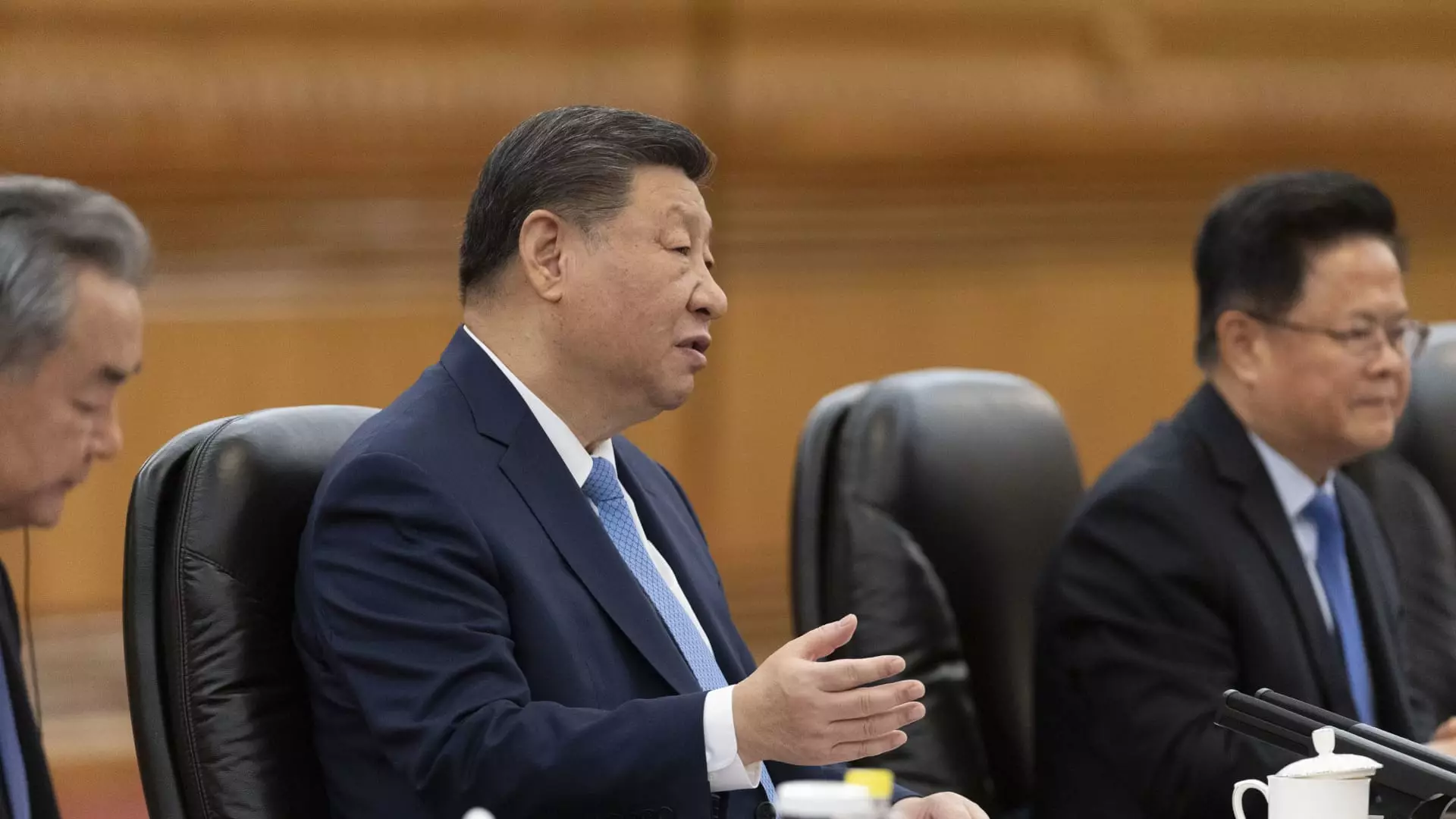In a notable address at a recent symposium, Chinese President Xi Jinping emphasized the pivotal role that private entrepreneurs play in the nation’s economy, as reported by state media outlet Xinhua. This speech has been perceived as a substantial indication of the government’s renewed commitment to supporting the private sector, which has faced mounting challenges over recent years. Analysts, such as Peiqian Liu from Fidelity International, suggest that this renewed focus could stimulate optimism among business leaders and encourage a resurgence of entrepreneurial activity that could surpass traditional fiscal measures.
The backdrop of this speech includes the ongoing struggles within China’s economy, characterized by sluggish domestic consumption, a protracted downturn in the real estate sector, and external pressures like tariffs affecting its exports. These factors have created a climate of uncertainty that has dampened investor spirit. Xi’s call for a revitalization of private enterprise signals a potential pivot in governmental strategy that could provide the much-needed impetus for economic growth.
This gathering represents more than just a meeting; it could signify a crucial turning point for China’s tech industry. After years of stringent regulatory scrutiny that began in late 2020—aimed at curtailing the expansive power of major tech firms—the atmosphere surrounding these companies may begin to change. Economist Lynn Song highlights the urgency reflected in the timing of Xi’s address, framing it as a necessary step to uplift the private sector amid current economic malaise and international trade challenges.
Such pronouncements could indicate that the era of extensive regulatory oversight may be drawing to a close, as commented by Andy Maynard from China Renaissance. The expectation among many is that, with supportive policies returning, entrepreneurs will regain the confidence necessary to innovate and invest. This could lay the groundwork for a revitalized tech sector that balances growth with responsible regulation.
The speculation surrounding Alibaba founder Jack Ma’s involvement in the symposium underscores a broader narrative about the changing dynamics within China’s business landscape. Ma’s previous conflicts with regulatory authorities have rendered him a symbolic figure of the challenges faced by entrepreneurs in China. His potential return to prominence might suggest a softer approach from Beijing, as it seeks to rebuild trust with private enterprises.
The meeting also reflects an acknowledgment from the Chinese leadership regarding the importance of collaboration with the private sector to navigate both domestic issues and external pressures. As the government aims to reinvigorate economic activities, fostering a conducive environment for startups and established companies alike will be crucial in reapporting growth trajectories.
Xi Jinping’s latest address to entrepreneurs marks a significant step in re-establishing the balance between government oversight and private sector growth in China. With an eye on rejuvenating the economy amid various challenges, this move could potentially catalyze a shift toward a more favorable business climate. As the sentiment among investors and entrepreneurs begins to strengthen, the true test will be the actual implementation of supportive measures by policymakers. The success of this initiative will depend not only on immediate reactions but on sustained engagement with the private sector going forward.


Leave a Reply